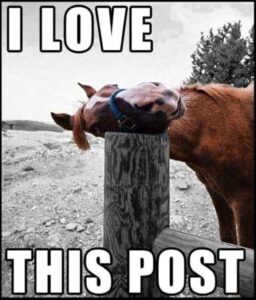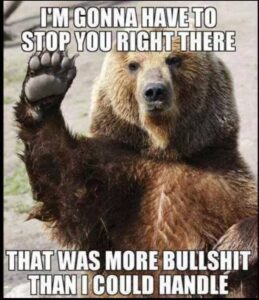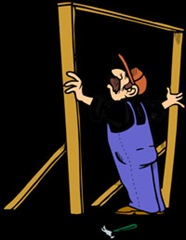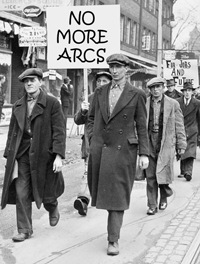An attention-grabbing headline is known as clickbait. Clicks in the virtual world hold great value. Not to authors, unless we’re running ads that turn into sales. Tech companies, on the other hand, gather data. The more we click, the more valuable we become.
“We are worth more when we are addicted, outraged, polarized, disinformed and so on, than if we’re actually a thriving citizen who is critically examining his or her own choices and trying to make do in the world.” ~ Tristan Harris, technology ethicist
As some of you know, 2025 has been a transformative year for me. I moved two hours south to the seacoast of New Hampshire. I gave myself permission to live life on my terms. I started over. Which isn’t easy later in life. But I needed a fresh start, a blank slate from which true happiness and fulfillment could bloom.
The first step in my journey was to unplug so I could think clearly and rediscover the woman I’d buried long ago. I missed her.
A funny thing happened when I detached from the virtual world. Colors appeared more vibrant. Wildlife still soothed my soul, but I also detected unique patterns in birdsong. I’ve long known patterns exist in nature. The Natural World is an inspiring place. And yet, what I learned surprised me.
Blue jays can count.
Crows and ravens have the same skill, only much more advanced. I never considered other birds might possess a similar superpower, until one day, while I was admiring wildlife at dusk, a lone blue jay called out to his tribe.
Whoop-whoop.
Another jay responded with a single bullet-like note. Sharp. Targeted. Controlled.
The designated leader called again. Whoop-whoop.
And the same receiver added one extra sharp note. The calls continued back and forth. Each time the receiver added an extra bulleted note, waited for the signal, and continued. The cycle stopped once he reached ten. Yes, I counted.
Satisfied with the response, the designated leader moved on to the next jay. Whoop-whoop.
The new receiver let out one sharp note. Waited for the signal, then added a second note. On and on it went until the response reached ten. The designated leader continued to the next jay, and the next, and the next, till the entire tribe was accounted for. Amazing, right? All bird species, it seems, have a roll call of sorts that occurs at dawn and dusk.
I never would’ve discovered that “fun fact” if I had my face buried in my phone.
Could I have spent my free time marketing my books? Sure, but feeding my soul is important. It keeps me grounded, centered, and happy. Lest we not forget there’s a fine line between the writing lifestyle and burnout. Learned that lesson the hard way by trying to do everything, be everywhere, and stay on track with the WIP.
With no ads running and an immediate withdrawal from online activities, my book sales tanked. I didn’t care. I needed solace and solitude. Now, I’m shooting for a more balanced approach. The to-do list and TBR will continue to grow (inevitable for authors) but that’s okay.
Skipping a day or two on social media won’t make or break anyone’s career.
With time away, I also learned the darker side of social media. For one, it is no longer a tool waiting to be used. It’s built to seduce and manipulate us by using our vulnerabilities against us. Algorithms predict how to addict its users. If you believe it’s not an addiction, consider this: The only people who call their customers “users” are drug dealers and tech companies. Every other business calls us patrons, customers, clients, guests, audience members, readers, consumers, etc…
“If you’re not paying for the product, then you are the product.” ~ The Social Dilemma
Author and tech guru, Jaron Lanier, expanded the quote…
“It’s the gradual, slight, imperceptible change in your own behavior and perception that is the product.”
We’ve all seen this play out on social media. People you know in real life say things that are so crazy and out-of-character, you wonder if you ever truly knew them.
How do tech companies change our behavior and perception?
Every single action we take online is being watched, tracked, and meticulously recorded, even something as minor as pressing the like button on a family photo. Social media companies know who’s lonely. They know who’s depressed. They know who’s breezing through their ex’s photos. They know what we do late at night. They know everything about us, whether we’re an introvert or extravert. Any neurological impairments we might have. What our personality type is.
“They have more information about us than has ever been imagined in human history.” ~Shoshana Zuboff
Imagine the power? Tech companies, like Meta and Twitter, can literally effect change with the push of a button. They can start a war, divide the country, or break-up couples. Look how many long-standing marriages ended because of vast differences in perception. One spouse believes such-and-such. The other believes the opposite is true. Neither will budge because their social media timeline confirms their position.
If you laid both devices side by side, you’d see contradictory feeds, each one tailored to the individual user. They both can’t be right, but that’s exactly what they’re reading on social media.
No one sees the same feed.
The only social media site that cares somewhat is TikTok. Believe it or not, users who’ve been scrolling for hours receive a message that suggests they take a break. I know this because I received that message after I started an account and stayed on the site to learn how to break into the #BookTok audience. I was also taking notes, but the algorithm didn’t know that.
“Algorithms are opinions embedded in code.” ~ Cathy O’Neil, PhD, author of Weapons of Math Destruction
Tech companies operate with almost no supervision. What do they do with all this data? They create models of every user, models that make predictions about our lives.
These companies have three main goals:
- Engagement: What will drive up your usage to keep you scrolling?
- Growth: What keeps you coming back and inviting friends to join?
- Advertising: As they monitor us, they need to ensure the company makes the most money off advertising. How? By making predictions on what ads we’ll interact with.
Who remembers when we discovered cinemas were hiding subliminal messages in movie previews?
The goal was to manipulate us into buying more popcorn. The public was outraged. How dare they try to manipulate us for profit!
Yet social media does the same thing. They know our likes and dislikes, where we live, who we’re friends with, who we love or hate, what videos we watch and for how long… they collect anything and everything so they can sell us — specifically, our attention — to the highest bidder at auction.
Where’s the outrage?
There is none. We’ve accepted it as part of life.
Am I proposing authors should delete their social media accounts?
No. Utilizing social media is a cost-effective way to market books. If you feel it’s causing more harm than good, then by all means quit. Or take a break.
- Walk away for a few days.
- Take a break now and then.
- Use social media as a tool rather than a cure for what ails you.
- Please, please, please don’t measure your success/failure — or your self-worth — by the number of likes and comments you receive.
The next time you’re tempted to grab your phone to check notifications, stroll outside for a few minutes. Inhale fresh air. Watch the wildlife in your yard. What shapes do you see in the clouds? Stargaze at night. Or bathe in moonlight. All of which have real health benefits.
Self-care is important for authors. Don’t deny yourself a life. Get out in the real world and experience simple pleasures. It’ll give you something to write about.
When you return to social media, you’ll be wiser and better equipped to deal with the chaos. You may even have a little fun.
Since today is Memorial Day, and the unofficial start to summer, many have plans for a cookout or to visit graves of fallen soldiers or even to take a simple “duvet day.” What do you have planned for today?
When you read this, I’ll be out of town for an extended weekend of R&R, but don’t let that stop you from having fun in the comment section. I’ll respond when I return on Wednesday.

 Have you read Meta’s new terms of service (TOS)? Even if you don’t have an account on Facebook, Instagram, Threads, Messenger, or WhatsApp, you may still be bound by its disgraceful overreach.
Have you read Meta’s new terms of service (TOS)? Even if you don’t have an account on Facebook, Instagram, Threads, Messenger, or WhatsApp, you may still be bound by its disgraceful overreach. I’ve spent 12 years on social media. *cringe* In that time I like to think I’ve learned a thing or two. That’s not to say my social media presence is 100% perfect. Far from it. I am a flawed human. The trick is knowing where and how you went wrong, so you don’t repeat the mistake and destroy your social media platform.
I’ve spent 12 years on social media. *cringe* In that time I like to think I’ve learned a thing or two. That’s not to say my social media presence is 100% perfect. Far from it. I am a flawed human. The trick is knowing where and how you went wrong, so you don’t repeat the mistake and destroy your social media platform.


